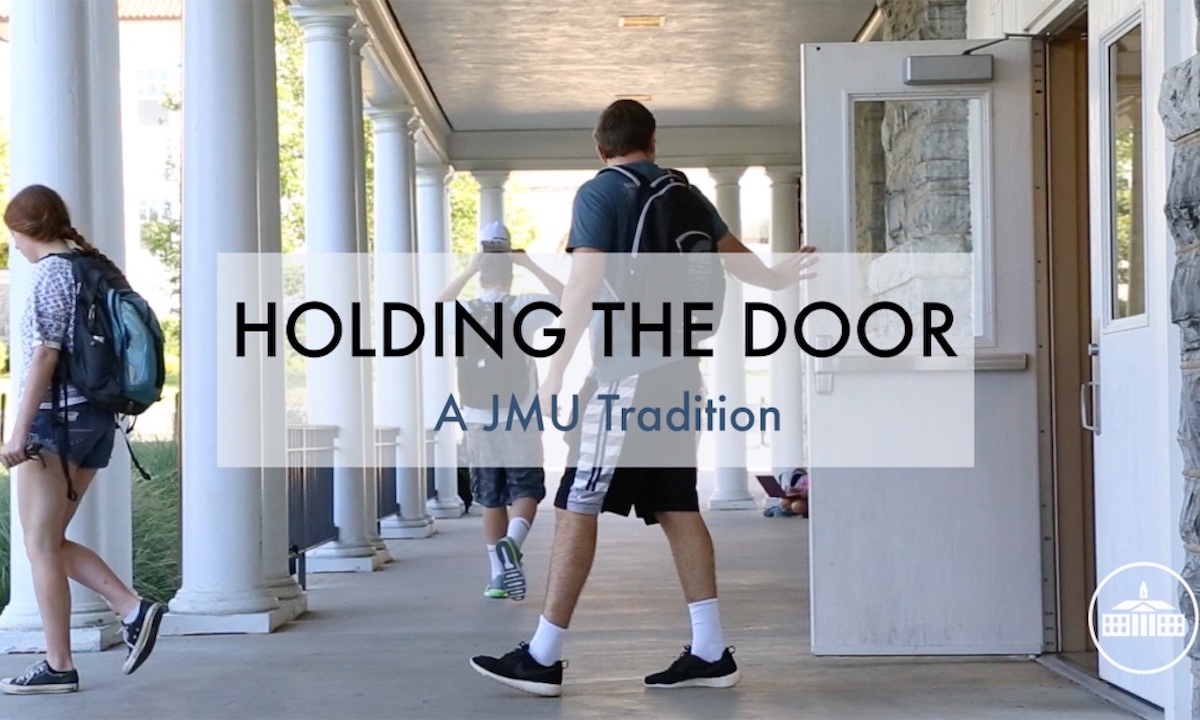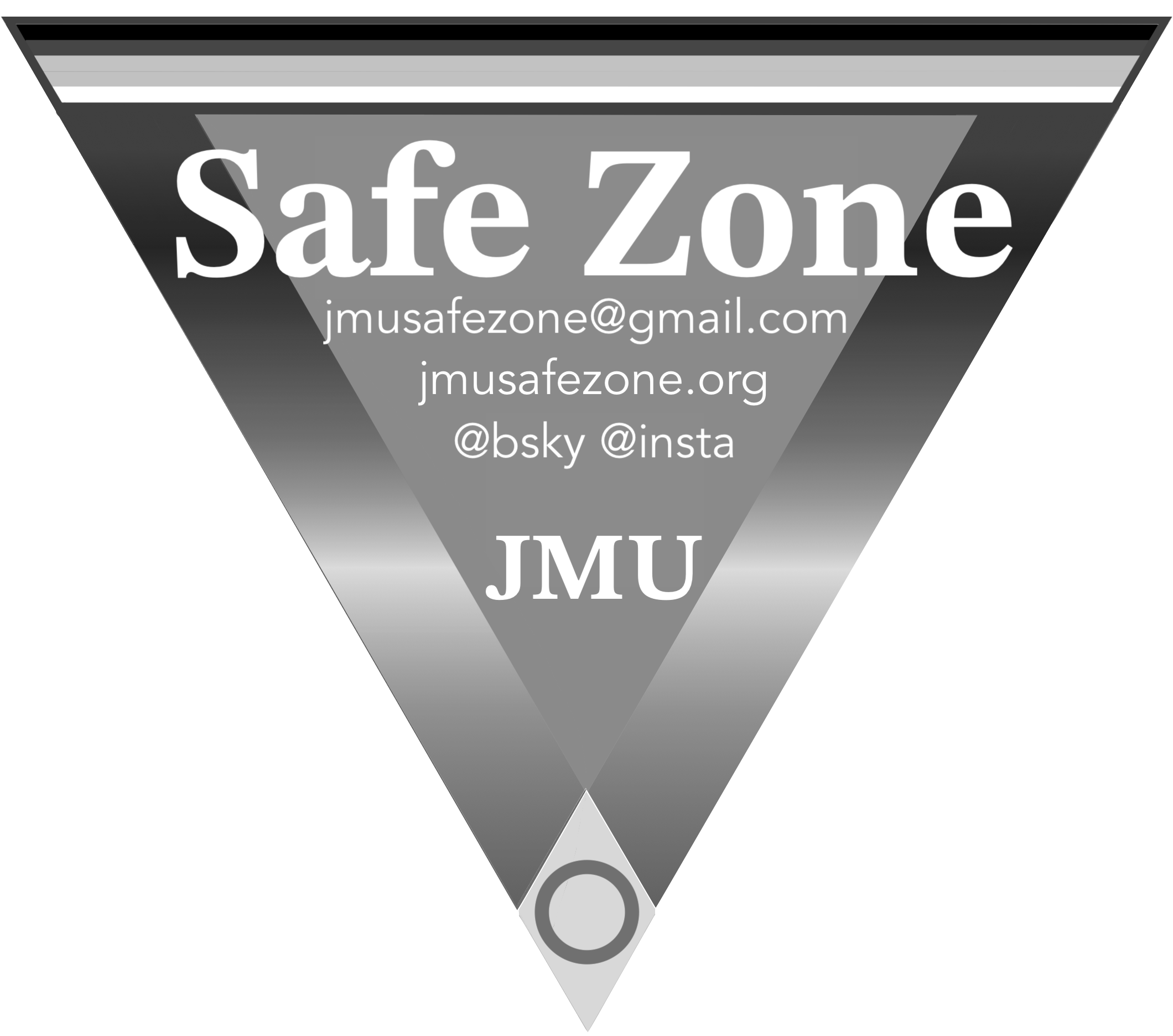About Safe Zone
Because our LGBTQ+ students, faculty, and staff can sometimes feel invisible on our campus and may experience the climate as uninviting or even hostile, we display the safe zone symbol to send a welcoming message to LGBTQ+ students and colleagues. Our message is one of understanding, non-judgment, confidentiality, and basic knowledge about the needs and concerns sexual and gender minorities. It is symbolic of a willingness and a commitment on our part to provide an atmosphere of acceptance, assistance, and advocacy.
Safe Zone is an unfunded voluntary network of JMU community members, not formally a part of the university. This is especially important in the context of of a public university during an era of political uncertainty, because our relative independence allows us to advocate and operate separately from political interests outside our mission. We are, however, lucky to work and study in a supportive environment.
Youth Harassment and Violence
Based on the GLSEN 2021 National School Climate Survey:
- 81.8% of LGBTQ+ students reported feeling unsafe at school due to their identity.
- Over 68% felt unsafe specifically because of their sexual orientation or gender identity.
- More than 78% avoided school events or extracurricular activities due to feeling unsafe or unwelcome.
- Nearly 70% of LGBTQ+ students experienced verbal harassment (name-calling, threats) related to their sexual orientation, gender expression, or identity.
- Approximately 31% reported being physically harassed (pushed, shoved), and 12.5% reported being physically assaulted (punched, kicked, injured) at school due to their LGBTQ+ identity.
- Most students experiencing harassment or violence (61.5%) did not report incidents to school staff, often believing no action would be taken.
Hate Crimes
According to the latest FBI statistics (2022-2023):
- Hate crimes against LGBTQ+ individuals continue rising and now represent roughly 20% of all reported hate crimes--the third highest category of reported hate crimes (after race and religion).
|
- Crimes motivated by sexual orientation increased by over
10% from 2021 to 2022.
- Hate crimes targeting transgender individuals rose by nearly 40% in the same period.
These numbers remain notoriously underreported, however, suggesting even higher actual occurrences.
Suicide and Homelessness
According to recent
CDC and
Trevor Project data (2021-2023):
- About 20% (1 in 5) of lesbian, gay, and bisexual youth attempted suicide in the past year, compared to around 5% of heterosexual peers.
- Roughly 26% (1 in 4) of transgender high school students reported attempting suicide within the past year, highlighting significantly higher risk compared to cisgender youth.
- Approximately 33 to 40% of homeless youth identify as LGBTQ+, despite making up only about 10% of the general youth population.
- The primary cause (for 68% of LGBTQ+ homeless youth) is family rejection or being forced out of their homes due to conflicts over sexual orientation or gender identity.
These statistics illustrate the need for programs that promote awareness and tolerance.
The Role of Faculty and Staff
In classrooms or workplaces, the consequences of living in fear can be especially harmful. LGBTQ+ individuals may avoid participating openly or sharing authentic perspectives due to concerns about judgment or backlash. Withholding personal insights limits the richness of classroom discussions and professional collaboration.
Faculty and staff are uniquely positioned to support LGBTQ+ individuals by cultivating inclusive, affirming environments. Even small adjustments, like normalizing LGBTQ+ content, using inclusive language, and fostering confidentiality, can profoundly impact student and colleague well-being. Equally crucial is explicitly reassuring individuals that their identities are valued and protected from discrimination.
Creating a culture where LGBTQ+ students and colleagues feel safe expressing themselves fosters inclusivity and significantly enhances their academic, professional, and emotional experiences. Faculty and staff who actively engage in creating safe, affirming spaces can make an invaluable difference in the lives and futures of the LGBTQ+ individuals they support.
|



 You are not alone. We are not alone.
You are not alone. We are not alone.